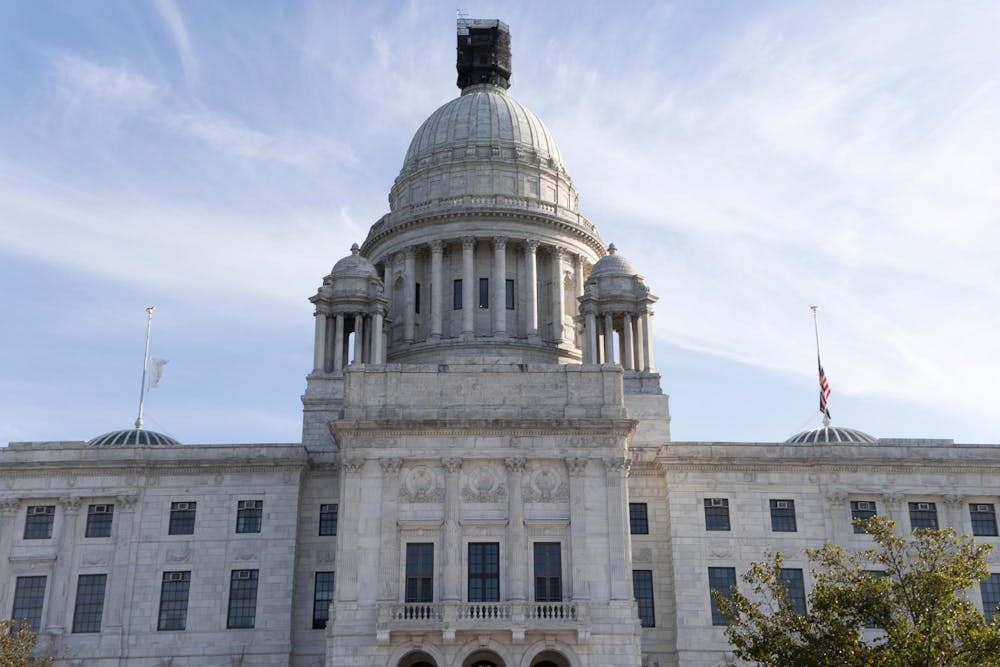Rhode Islanders will have a lengthy ballot on their hands this November. Beyond presidential, Senate and House candidates, residents will also get a chance to vote on approving $160 million in support for higher education — and, potentially, to change the state’s constitution.
Here’s a preview of the most important issues on the ballot.
Higher Education Facilities Bond Measure
If passed, the state of R.I. would issue $160.5 million in bonds to improve higher education facilities at its public institutions, according to Article 5.
The University of Rhode Island would receive $87.5 million to construct a biomedical sciences building.
Rhode Island College would receive $73 million to renovate Whipple Hall, which houses the institution’s Department of Communication, computer labs, training spaces for manufacturing businesses and STEM exploration spaces for local K-12 students.
RIC would also allocate some of the funding toward improving their Institute of Cybersecurity & Emerging Technologies, which provides opportunities for “business, workplace experience, job placement and career development” in cybersecurity and artificial intelligence according to their website.
Housing Acquisition, Development and Infrastructure Bond Measure
Approval of this initiative would allow the state to issue $120 million to increase the “availability of housing, support community revitalization and promote home ownership,” according to the proposition.
$80 million would be allocated toward increasing the low and moderate income housing availability, of which $10 million could “be used to support a new program for public housing development.” An additional $20 million would go toward increasing “production of low- and moderate and middle-income housing intended for homeownership.”
More funds would be allocated toward expanding the volume of affordable housing.
Environmental and Recreational Infrastructure Bond Measure
If passed, this ballot initiative would allocate $53 million toward “environmental-related infrastructure, local recreation projects and for preservation of land,” according to the proposal. These projects include infrastructure improvements at the Port of Davisville, resiliency measures for the Newport Cliff Walk, local recreation projects and forests and habitat management.
The state would provide $2 million in grants to improve coastal habitat resiliency and restore floodplains and rivers, many of which became vulnerable following “increased flooding, major storm events and environmental degradation.”
The state would provide an additional $10 million in assistance to coastal municipalities to improve their infrastructure and public safety for these events.
This initiative comes after several other bills supporting coastal resiliency projects, including H7022, which mandated the creation of a coastal resiliency plan by June 30, 2025, The Herald previously reported. The bill was passed through both the House and Senate and was signed into effect by the governor in June.
Cultural Arts and Economy Grant Program Bond Measure
This measure would issue $4 million in funding for R.I. State Council on the Arts’ Cultural Arts and Economy Grant Program for “capital improvement, preservation and renovation projects for public and nonprofit artistic, performance centers, museums and cultural art centers,” according to the proposition.
The ballot issue would also allocate $6 million to the Tomaquag Museum, the Newport Contemporary Ballet and the Trinity Repertory Company, with each center receiving $2 million if passed.
Ballot Question 1
This question proposes holding a constitutional convention at which delegates could propose changes to the state constitution. In Rhode Island, this question, also known as the constitutional convention question, can only be on the ballot every 10 years.
The last state constitutional convention was held in 1984, with a “yes” vote of 53.82%. The question has since been defeated in 1994, 2004 and 2014, according to Ballotpedia.
Voter registration for the Rhode Island general election ends October 6, 2024. Voters can cast their ballots as early as October 16, 2024 — 20 days before the general election — at designated polling locations.

Avani Ghosh is a Metro editor covering city and state politics. She is a junior from Ohio studying Health and Human Biology and International and Public Affairs. She is an avid earl grey enthusiast and can be found making tea in her free time.





